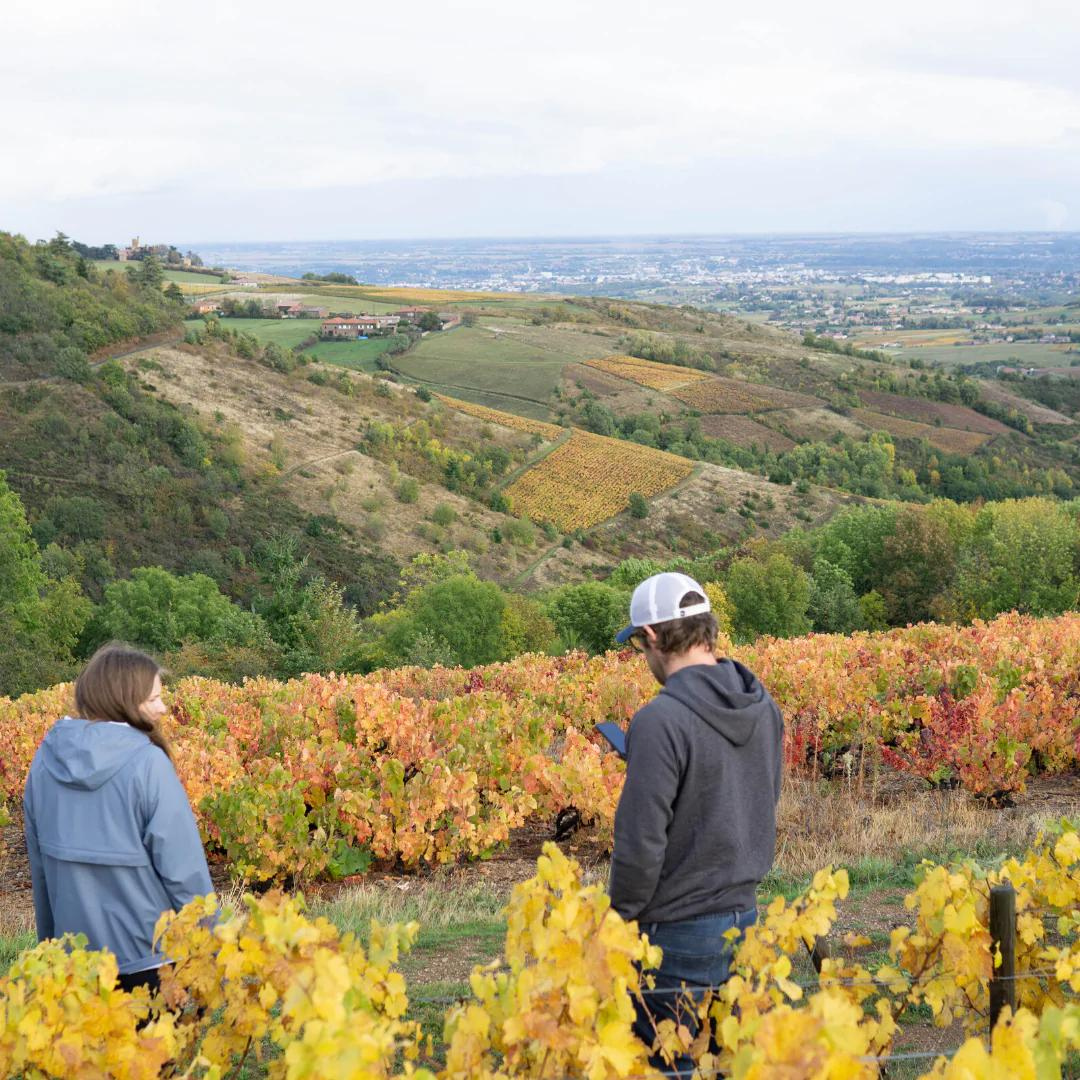Beaujolais, renowned for its distinctive natural wine profile, embodies the essence of the region's terroir with its vibrant and expressive character. Crafted primarily from the Gamay grape, Beaujolais natural wines are celebrated for their purity, freshness, and lively acidity. These wines often exhibit charming aromas of red berries, particularly strawberries and cherries, accompanied by floral notes and subtle earthy undertones. On the palate, Beaujolais natural wines delight with their juicy fruitiness, offering flavors of ripe raspberries and cranberries, supported by soft tannins and a refreshing minerality. With minimal intervention in the winemaking process, these wines showcase the true essence of the grape and the unique terroir of the Beaujolais region, making them a delightful choice for wine enthusiasts seeking authentic and approachable expressions of natural winemaking.

















